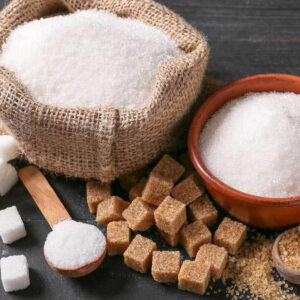Some people prefer beet sugar vs cane sugar for its supposed health advantages and minimal processing.
Some people prefer beet sugar vs cane sugar for its supposed health advantages and minimal processing.
Blog Article
Discovering the Differences in Uses and Advantages Between Beet Sugar Vs Cane Sugar
In the culinary world, the selection in between beet sugar and cane sugar is not merely regarding sweet taste but includes a nuanced factor to consider of taste, application, and effect. While both sugars stem from various plants, each undergoes special manufacturing procedures that discreetly affect their attributes and viability for numerous recipes.
Origins and Production Processes of Beet and Cane Sugar

Cane sugar, on the various other hand, comes from the sugarcane plant, an exotic turf belonging to Southeast Asia now cultivated in exotic zones worldwide. The manufacturing of cane sugar begins with the harvesting of cane stalks, which are crushed to release the juice. This juice is then steamed to concentrate it, after which it is spun in centrifuges to generate raw sugar crystals. These crystals are further fine-tuned to generate the white sugar frequently readily available in stores.

Nutritional Content and Health Considerations

When comparing the dietary content of beet sugar and cane sugar, it becomes apparent that both types essentially supply the same calorie worths, with about 16 calories per teaspoon and no substantial nutrient diversity. Each is composed almost entirely of sucrose, which is a simple carb that provides quick power however does not have vitamins, minerals, or fiber. This similarity reaches their effect on health, especially concerning blood sugar level levels. Both sugars, when eaten in excess, can add to raised blood sugar degrees, a risk element for diabetic issues and various other metabolic conditions. Furthermore, too much consumption can cause weight gain and oral troubles, as both sugars are equally cariogenic, promoting dental caries. From a health point of view, moderating intake of any kind of type of sugar, whether from beet or cane, is advisable to stay clear of these prospective negative impacts on health. Therefore, neither holds an unique advantage over the other in regards to health and wellness advantages.
Taste Profiles and Culinary Applications
In spite of their similar chemical frameworks, beet sugar and cane sugar vary subtly in taste, which can influence their use in numerous culinary contexts. Cane sugar frequently lugs a tip of molasses, even in its refined form, offering a cozy, caramel-like undertone that enhances baked items, coffee, and chocolate-based recipes. On the various other hand, beet sugar is characterized by its highly refined, neutral preference, making it a flexible sweetener that does not change the flavor profiles of dishes.
Ecological Influence and Sustainability
While both beet and cane sugars are obtained from plants, their environmental influences differ significantly due to the distinct techniques of cultivation and processing needed for each. Sugar beet growing typically entails comprehensive mechanization, which can increase fossil fuel consumption and carbon discharges.
Furthermore, the handling of sugarcane commonly creates a significant amount of waste, including bagasse, which, although usable as biofuel, frequently adds to air pollution if shed inefficiently. Sugar beet handling makes use of more of the raw products, leading Continue to less waste. Both try this out markets deal with obstacles in minimizing their environmental impacts, however continuous technologies in farming techniques and waste monitoring are intending to improve sustainability.
Economic Aspects Influencing the Sugar Sector
The economic dynamics of the sugar sector are considerably affected by worldwide market needs and trade policies. Aspects such as tariffs, subsidies, and global profession arrangements play critical roles fit the affordable landscape. In areas where sugarcane or sugar beet manufacturing is subsidized, producers might have an economic advantage that allows them to use reduced prices on the worldwide market. This can create disparities in success and market access for manufacturers in countries without such aids.
In addition, fluctuations in global need for sugar, influenced by nutritional fads and commercial use in food products, directly effect rates and manufacturing levels. beet sugar vs cane sugar. Weather also play a crucial role, as they can dramatically impact crop yields and, as a result, the supply chain. This irregularity presents a degree of economic unpredictability that can result in investment volatility in sugar manufacturing sectors, affecting decisions from planting to market approach
Verdict
In final thought, both beet and cane sugar have unique top qualities that fit different culinary needs. While see this website cane sugar imparts a rich flavor suitable for enhancing baked products, beet sugar's nonpartisanship is ideal for lighter meals. Nutritional similarities regardless of, their distinct production procedures and environmental influences add intricacy to the option between them. Therefore, understanding these distinctions aids chefs and consumers make educated choices that straighten with their health, cooking, and ethical choices.
Report this page